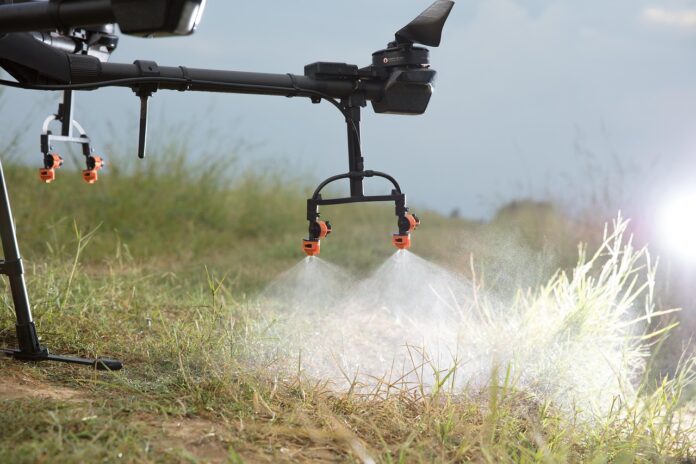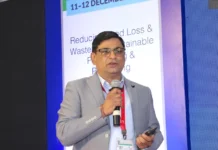
More than 56 countries from across the Global South convened virtually for a high-level conference on Strengthening Agricultural Resilience—an event aimed at sharing agricultural solutions among nations of the Global South to collectively address their most urgent and complex challenges, from climate stress and soil degradation to market volatility and food insecurity.
Jointly hosted by the ICRISAT Centre of Excellence for South-South Cooperation in Agriculture (ISSCA) and Dakshin – the Global South Centre of Excellence at the Research and Information System for Developing Countries (RIS), the conference forms part of the Government of India’s Development and Knowledge Sharing Initiative to advance South-South collaboration.
The forum brought together global leaders in agricultural research and policy – including professor Sachin Chaturvedi, director general of RIS, and Himanshu Pathak, director general of ICRISAT – alongside scientists, farmer organizations, and development institutions who showcased powerful, field-tested solutions developed in the South, for the South.
Speaking at the forum, Pathak said that the Global South is rich in indigenous knowledge, homegrown technologies, and tested development models. Countries facing similar climates and economic realities are uniquely positioned to share practical, resilient solutions. What we need now is the confidence and systems to scale this cooperation so that local successes become global progress. The Green Revolution offers a telling lesson: its greatest impact wasn’t in the science alone, but in how nations like India, Mexico, and the Philippines adapted and transformed those ideas into solutions that worked for their own people and landscapes,” said Dr Pathak.
Three key pillars of agricultural resilience
*Showcasing the ISSCA Knowledge Portal launched in Delhi, now featuring 85+ curated, science-based and scalable innovations across all domains of agriculture—and growing daily.
* Partner-led presentations across five thematic areas: Natural Resource Management & Climate Resilience; Crop Improvement & Production Technologies; Livestock Improvement & Production Technologies; Digital Agriculture; and Agribusiness & Market Systems.
*Strategic dialogue on regional technology needs, policy alignment, and co-development opportunities to scale what already works for diverse contexts across the Global South.
The ISSCA platform, positioned as a flagship global south agri resource hub, uses filtering to help match solutions to specific geographies, crops, and climate challenges, among other areas.
Participants reaffirmed that the future of agriculture is not one-size-fits-all, and that solutions must be tailored, co-owned, and co-developed.
Highlights and outcomes
Endorsement of ISSCA as a neutral platform to amplify Southern-led innovation; Commitments to pilot South-South collaborations across multiple agroecological zones; and Interest from additional countries to join ISSCA’s regional hubs in Africa and Latin America.
As the conference concluded, the central message was clear: resilience is not built in isolation, and solutions need not always be imported. Both emerge through shared knowledge, bold partnerships, and trust in the innovations the Global South already holds.
ISSCA will now carry these outcomes into upcoming policy forums and continue enhancing its knowledge portal in response to stakeholder demand, advancing its broader mission to connect innovation with impact across the Global South.
IndiFoodBev — authentic, impactful and influential
An English-language food and beverage processing and packaging industry B2B platform in print and web, IndiFoodBev is in its third year of publication. It is said that the Indian food and beverage industries represent approximately US$ 900 billion in revenues which implies more than 20% of the country’s GDP. Eliminating the wastage on the farmside can help to deliver more protein to a higher number of the population apart from generating sizable exports. The savings in soil, seeds, water, fertilizer, energy and ultimately food and nutrition could be the most immense contribution that country is poised to make to the moderation of climate change.
To improve your marketing and grow sales to the food and beverage processing and packaging industry, talk to us. Our research and consulting company IppStar [www.ippstar.org] can assess your potential and addressable markets in light of the competition. We can discuss marketing, communication, and sales strategies for market entry and growth.
Suppliers and service providers with a strategy and budget for targeted marketing can discuss using our hybrid print, web, video, and social media channels to create brand recognition linked to market relevance. Our technical writers are ready to meet you and your customers for content.
The second largest producer of fruit and vegetables in the world is continuously expanding processing capacities and delivery systems with appropriate innovative technologies. We cover product and consumer trends, nutrition, processing, research, equipment and packaging from farm to thali. Get our 2025 media kit and recalibrate your role in this dynamic market. Enhance your visibility and relevance to existing markets and turn potential customers into conversations. Ask for a sample copy of our bi-monthly in print or our weekly IndiFoodBev eZine each Wednesday.
For editorial info@ippgroup.in — for advertisement ads1@ippgroup.in and for subscriptions subscription@ippgroup.in
Naresh Khanna – 10 February 2025
Subscribe Now











